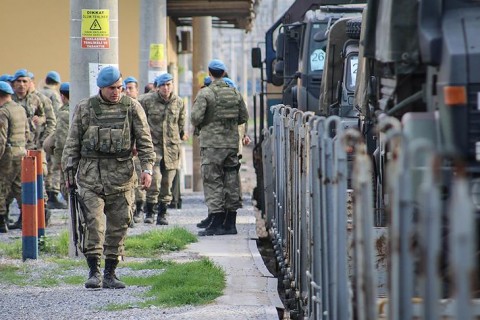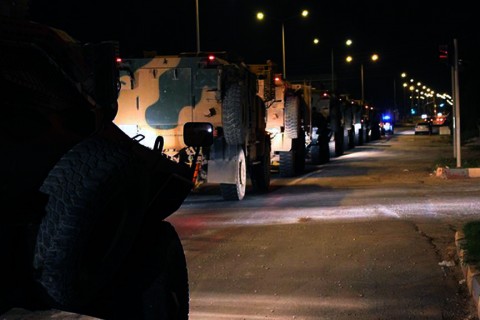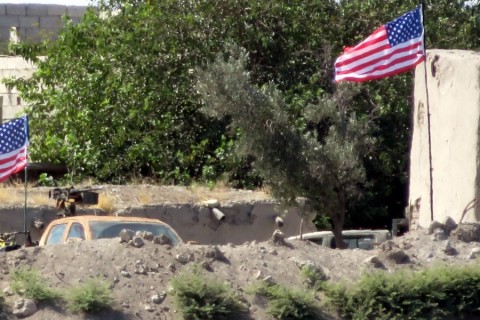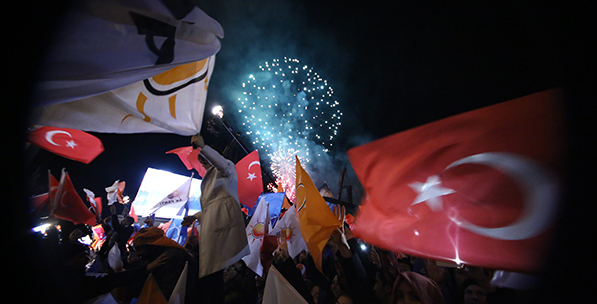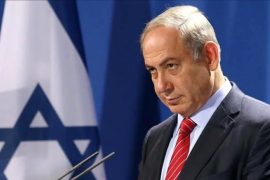1984

The political economy of the transformation of Islamic finance in Turkey
| EconomyWhen Islamic finance is mentioned around the world, the first thing that comes to mind …
-
Opinion
Turkey’s military action against YPG inevitable
By Burhanettin DuranThe YPG is the Syrian arm of the outlawed PKK that has been fighting against the Turkish state for years, so it is impossible for Ankara to accept any presence of these militants near its borders
-
Opinion
Large convoys dispatched near Afrin with operation imminent
By Can AcunAnkara is getting ready for a military operation against the threat of a terror corridor on the Syrian border, dispatching military convoys to southern cities, hitting PKK/PYD targets in Afrin
-
Foreign Policy
The U.S. Must Heed Turkish Concerns in Syria
By Kadir ÜstünIf the US insists on supporting the YPG against Turkey's wishes, Syria's post-ISIL stability is going to be in peril.
Bu Konuda Daha Fazla
-
Outcome Of The Elections, Erdoğan And The Gülen Movement
By Burhanettin DuranThe elections will not end polarization in Turkish politics. In fact, this election should be seen as the first phase of the presidential elections of Aug. 10, 2014.
-
Turkey’s Approach to Syria’s Kurds Ignores Potential Gains
By Galip DalayTurkey should recognize that the neighbors with which it will likely share its longest borders are not Syria and Iraq, but Kurdish political entities.
-
How to Engage Political Islam (II)
By Ibrahim KalinLast week, I discussed the three perceptions of threat regarding Islamic political parties and groups: they’re a threat to democracy, they’re a threat to Western interests, and they are violent.
-
İslam, Modernite ve Müslüman Dünya: 21. Yüzyıl İçin Yeni...
Dünyaca ünlü düşünür ve ilim adamı Prof. Dr. Seyyid Hüseyin Nasr, 21 Ocak 2009...
-
Does Turkey Need a New Standby Agreement?
By Erdal Tanas KaragölSince 1960, nineteen Standby arrangements have been signed. With these agreements, significant progress has been made in Turkish economy: inflation has fallen to the lowest level since 1986, the public debt-to-GNP ratio has been falling, and interest rates have declined rapidly. IMF’s immediate goals concern exchange rate stability and balance of payments, and evaluations of IMF programs tend to concentrate on these two objectives. Yet, whether or not the IMF programs have positive effects on these short-term goals, what ultimately matters is that they induce economic growth and do not concentrate on incomes.
